创建文件模板
需求
存在这样的模板:
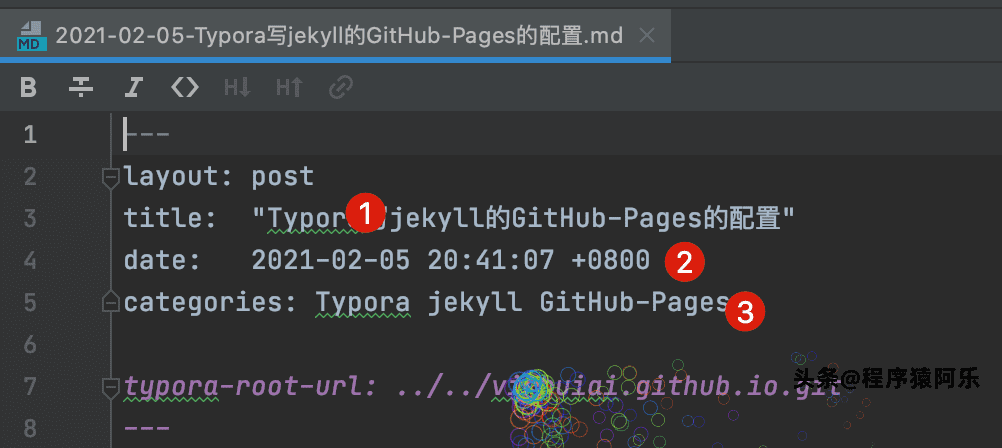
用途:写GitHub Pages时创建Markdown的时候,在第一部分的内容,有几个是变量,几个是常量。
解决方案
IDEA 社区版的文件模板功能。
设置
第一步,打开设置:

第二步,搜索template,选择File and Code Templates,点右边的+号:
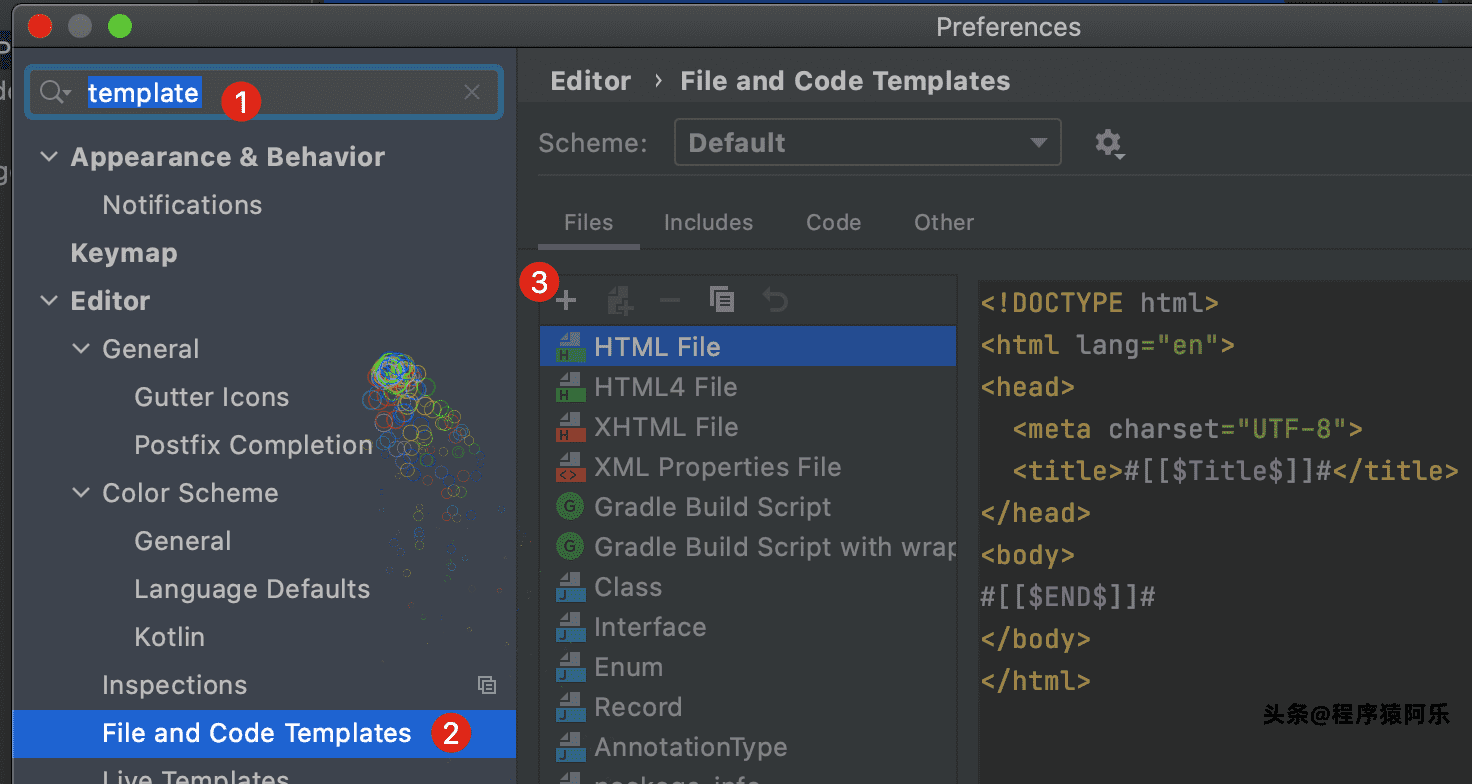
新建模板
我们起名叫GitHubPageMarkdown吧:
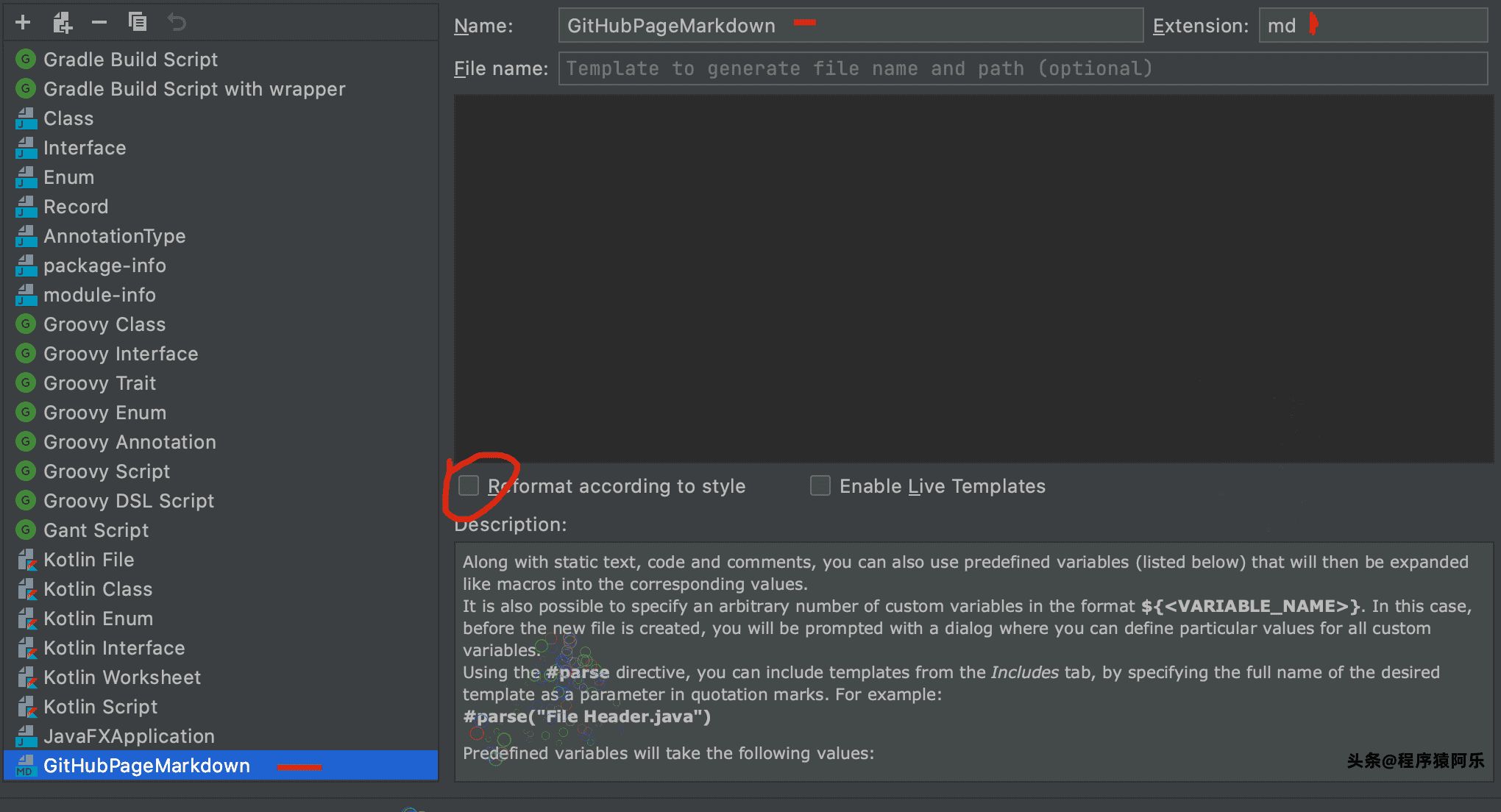
下面的一部分是说明:

设置我们的模板内容:
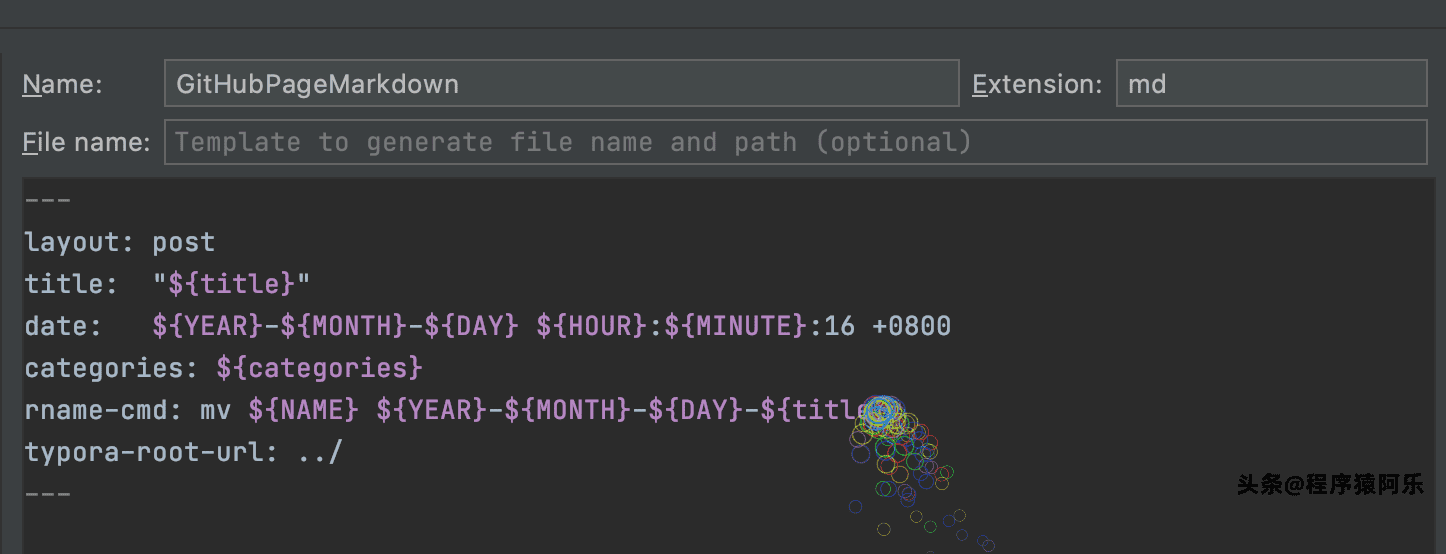
说明:
${title}和${categories}是我们自定义的变量,其他的是预定义好的变量。
---
layout: post
title: "${title}"
date: ${YEAR}-${MONTH}-${DAY} ${HOUR}:${MINUTE}:16 +0800
categories: ${categories}
rname-cmd: mv ${NAME} ${YEAR}-${MONTH}-${DAY}-${title}
typora-root-url: ../
---
点击Apply,OK完成创建:
查看效果
右键,点New,选择我们刚刚创建好的模板GitHubPageMarkdown:
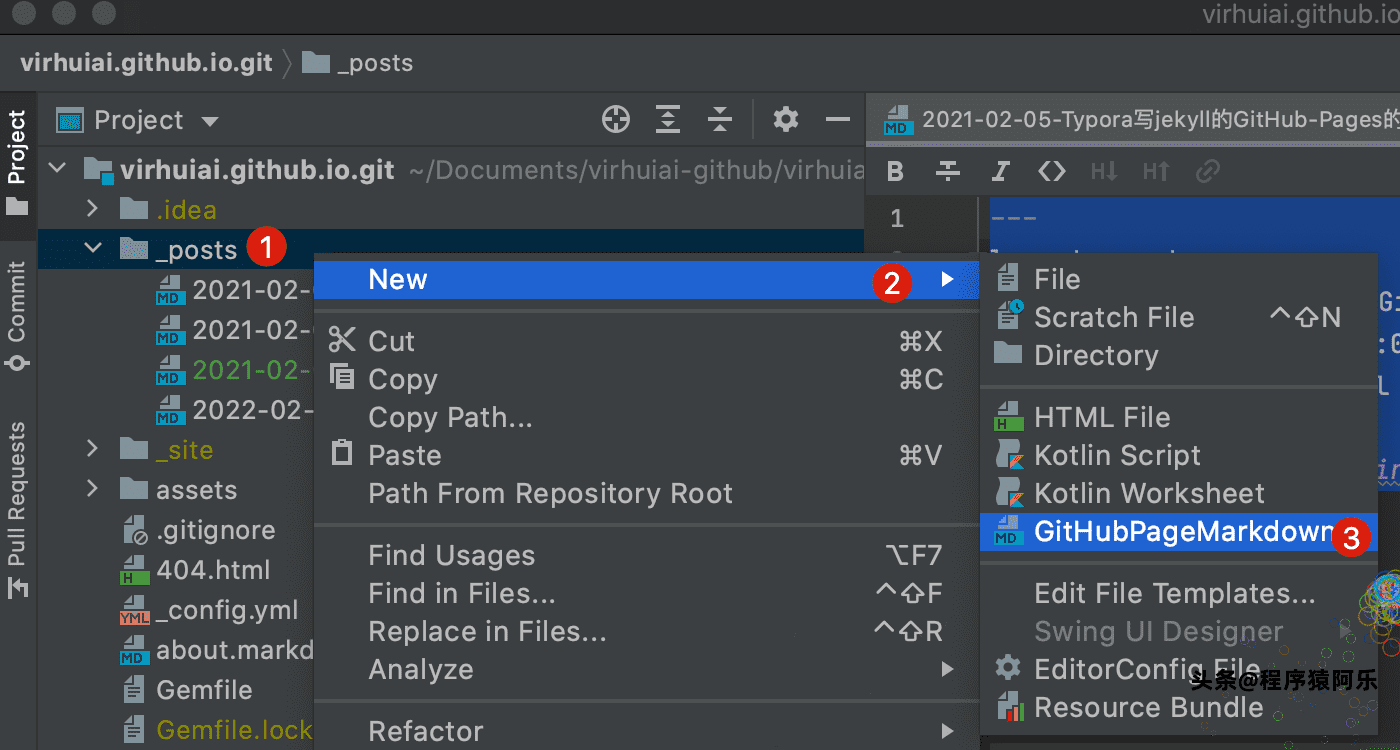
弹出框,填写信息:
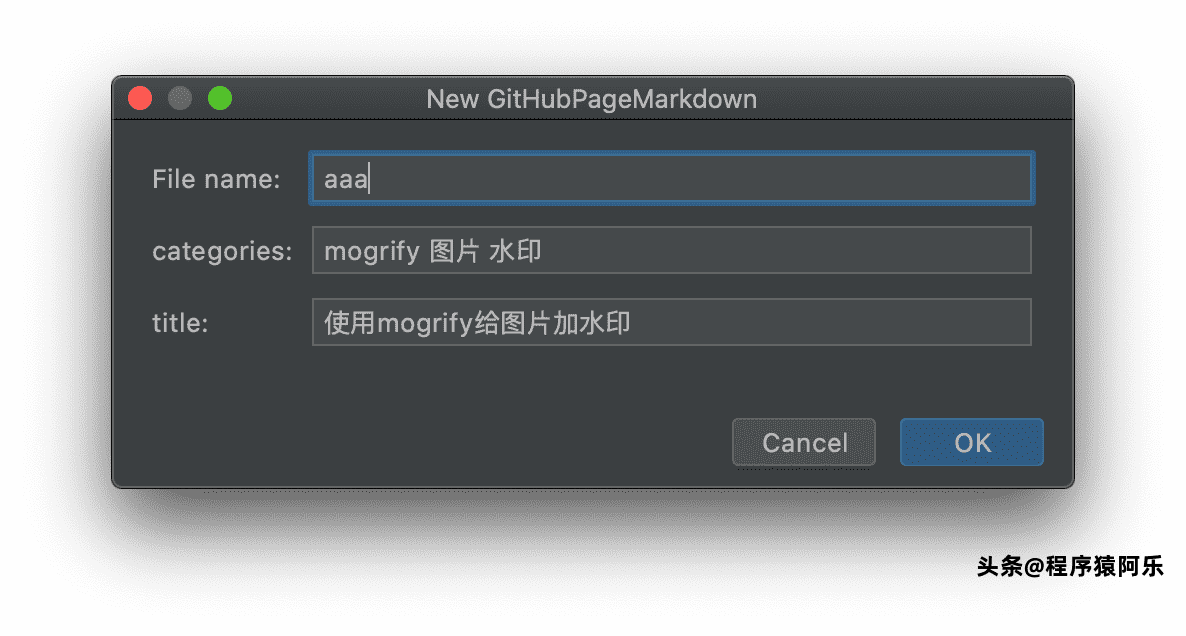
这儿的文件名随意写一个不存在的就可以,真实的文件名在后面。点击OK创建文件:
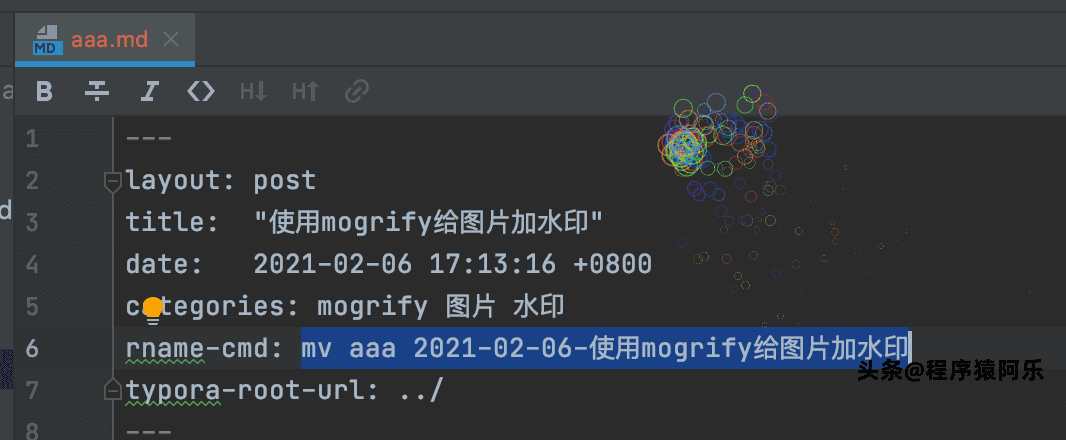
其他都符合了,rname-cmd的有点问题,再修改下模板:
---
layout: post
title: "${title}"
date: ${YEAR}-${MONTH}-${DAY} ${HOUR}:${MINUTE}:16 +0800
categories: ${categories}
rname-cmd: mv ./_posts/${NAME}.md ./_posts/${YEAR}-${MONTH}-${DAY}-${title}.md
typora-root-url: ../
---
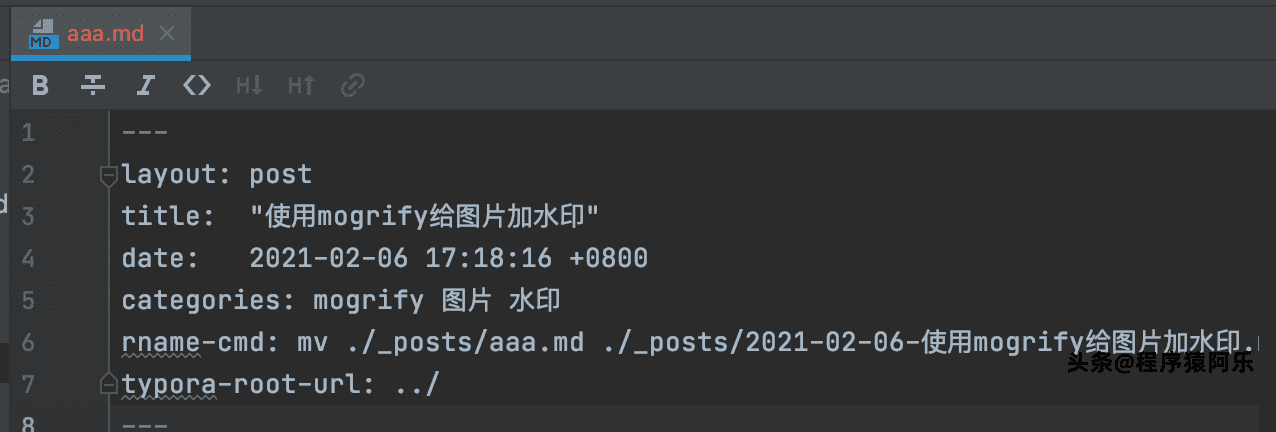
现在重命名文件,复制rname-cmd:后的内容,在命令行中运行:
mv ./_posts/aaa.md ./_posts/2021-02-06-使用mogrify给图片加水印.md

现在就完成啦。
模板的英文说明
Along with static text, code and comments, you can also use predefined variables (listed below) that will then be expanded like macros into the corresponding values. It is also possible to specify an arbitrary number of custom variables in the format ${<VARIABLE_NAME>}. In this case, before the new file is created, you will be prompted with a dialog where you can define particular values for all custom variables. Using the #parse directive, you can include templates from the Includes tab, by specifying the full name of the desired template as a parameter in quotation marks. For example: #parse("File Header.java")
Predefined variables will take the following values:
${PACKAGE_NAME}
name of the package in which the new file is created
${NAME}
name of the new file specified by you in the New <TEMPLATE_NAME> dialog
${USER}
current user system login name
${DATE}
current system date
${TIME}
current system time
${YEAR}
current year
${MONTH}
current month
${MONTH_NAME_SHORT}
first 3 letters of the current month name. Example: Jan, Feb, etc.
${MONTH_NAME_FULL}
full name of the current month. Example: January, February, etc.
${DAY}
current day of the month
${DAY_NAME_SHORT}
first 3 letters of the current day name. Example: Mon, Tue, etc.
${DAY_NAME_FULL}
full name of the current day. Example: Monday, Tuesday, etc.
${HOUR}
current hour
${MINUTE}
current minute
${PROJECT_NAME}
the name of the current project
Apache Velocity template language is used